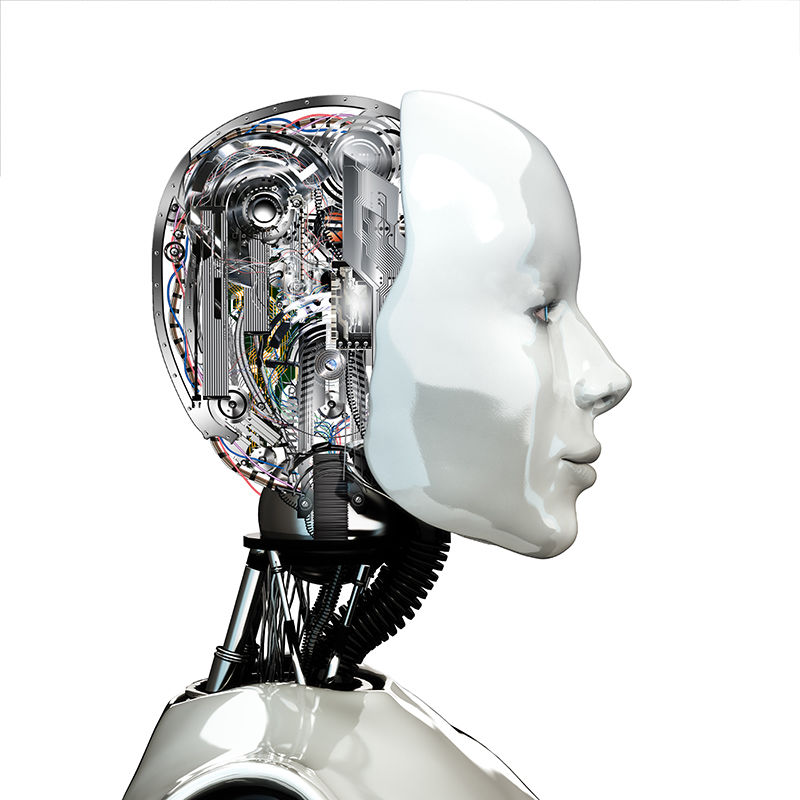There’s a lot of talk in the news media about artificial intelligence and the advent of fully automated robots who will be able to think on their own, make intricate and logical decisions, and basically be the realization of just about every science fiction movie and television series ever made.
Real science may be just getting around to these kinds of super androids, but for movies and television it is old hat. From the eerie and still mesmerizing robot Maschinenmensch in the silent movie classic “Metropolis” from Germany, to the campy Robbie the Robot from the 1950s film “Forbidden Planet,” robots have proved fertile ground for cautionary tales from science fiction imaginations.
But therein lies the rub. As the real science of robotics continues at what we mere humans see as an accelerated pace. The humanity of the machines seems to rise in direct correlation to the decrease in the humanity of humans. There is a wedge being driven between the reason of our robotic science and the faith of our belief in a God-centered and God-inspired human creation.
One of the first cracks this wedge created is found in the film “Blade Runner,” a sci-fi cop thriller set in 2019 Los Angeles starring Harrison Ford. I guess 2019 sounded far away when the movie was made, but it is only three short years away as I type this article. Los Angeles — though riddled with issues and problems — looks nothing like the grim, dark, forever raining (I wish) and overpopulated landscape that “Blade Runner” portrays.
The film’s main “contribution” to the robot v. human universe comes in the aftermath of an action-packed climax, with Harrison Ford riding off into the sunset with his best girl — who also just happens to be a replicant, not a human being. In fact, I’m not all that sure the protagonist played by Ford is packing 46 chromosomes either — an ambiguity I believe was intentional.
But, even if the good guy in this movie was indeed a real guy, the message of him disappearing back into our imaginations with some kind of feeling of completeness alongside the mortal equivalent of a Coca-Cola vending machine is just a little too weird.
Now we have the HBO reboot of the Michael Crichton thriller “Westworld.” The trailer for the upcoming series looks great. It has big production values and a great cast.
If I were to watch this, I am sure I would be impressed by all that — but I am also sure I would come away feeling a little queasy. Why? Well, according to the PR marketing, this version of “Westworld” — where robots run amuck and go about killing the patrons of an adult theme park where you can play cowboys and Indians — will be told from the androids’ point of view.
Call me a luddite, but I didn’t know androids could have a point of view. In a case of extreme irony, it is the rationalists who betray a blind faith to the science they believe topples the antiquated concept of man or woman made in a supreme being’s image.
But as far as scientific fact and “artificial intelligence” go, no matter how advanced we’d like to think machines and future robots may be, their “brains” still consist only of circuitry that rely on endless sequences of 0’s and 1’s.
I guess the next logical step with movies and television is a remake of “Jaws” from the point of view of the shark. Or a remake of “Dracula” from a sympathetic point of view of the … oh, too late for that one!
The end result of all this is not that elevating machines, even if they look human, is bad — which it might be. It’s the denigration of God’s greatest invention. Maybe we don’t look as perfect as the androids in the new “Westworld” series but, by virtue of our very existence, we are so much more than a batch of 0’s and 1’s
Robert Brennan has been a professional writer for more than 30 years, including many years in the television industry.

